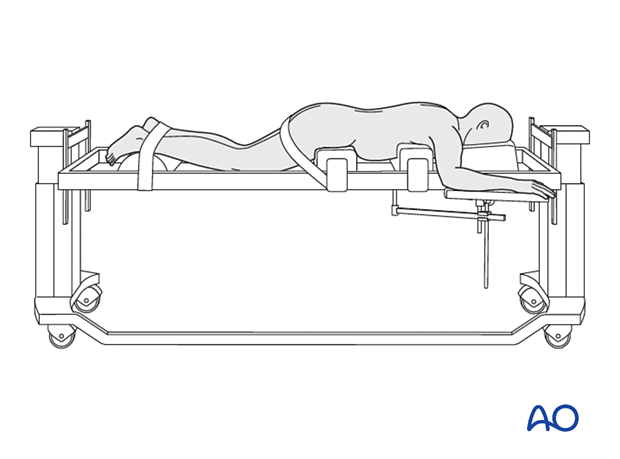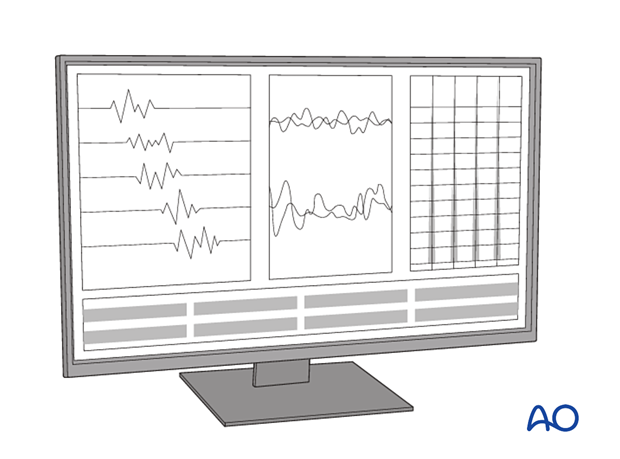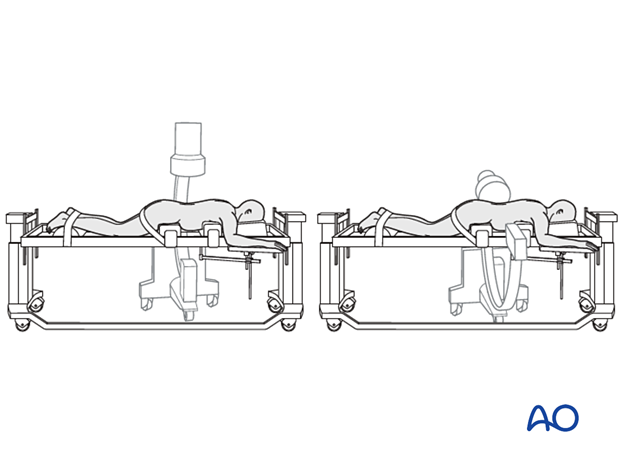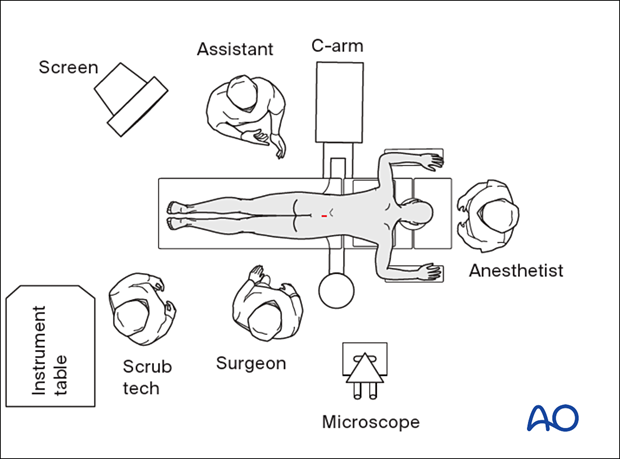Prone position for MISS Transforaminal lumbar interbody fusion (TLIF)
1. Patient positioning
The patient is positioned prone on a radiolucent table with two horizontally placed padded bolsters (one at the level of the sternum and another at the level of the anterior iliac spine) or on a Jackson table frame.
- The head is placed in a padded face mask to avoid pressure on the eyes and have the endotracheal tube free with the neck in a neutral position.
- The abdomen should hang free to avoid high intraabdominal pressure and subsequent venous pressure causing excessive bleeding of the spine.
- The arms/shoulders should rest comfortably in a 90° position of the shoulder and elbow. Ensure the wrists and elbows are adequately padded to prevent peripheral neuropathy.
- Adequate padding must be provided to the elbows and knees to avoid pressure sores.
- A small bump or blanket roll should be placed under the legs to flex the knees slightly.

2. Anesthesia
General anesthesia with endotracheal intubation is required.

3. Preoperative antibiotics
Antibiotics should be administered prior to incision and at two-hour intervals during the procedure.
A cephalosporin antibiotic with good Gram-positive coverage is generally recommended.
Patients with penicillin allergies should receive vancomycin or clindamycin.
4. Spinal cord monitoring
Spinal cord monitoring is optional and typically includes free running and triggered EMGs. In cases where patients also have cervical or thoracic stenosis, SSEP and MEP monitoring should be considered.

5. Fluoroscopy
The incision can be planned based on AP and lateral fluoroscopy.

OR setup
If a microscope is used, it should be placed on the surgeon’s side and opposite the image intensifier portion of the C-arm fluoroscope.














